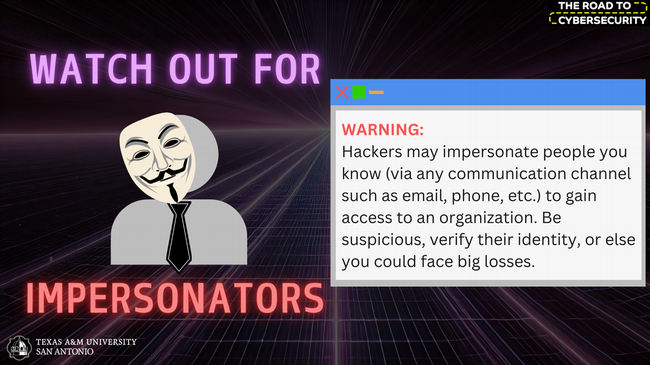October is National Cybersecurity Awareness Month
2024 Theme: The Road to Cybersecurity
Each week, we will share helpful tips and resources to secure your screen against the hackers — at work and at home. There is a lot to do in October for National Cybersecurity Awareness Month, so check out the 2024 events!
Weekly Flyers
Week 5
Week 5:
BE A LEADER, BE THE EXAMPLE
Protect yourself and your colleagues by practicing and sharing cybersecurity best practices, such as using a strong password.
YOU could be the difference between our campus being secure or compromised.
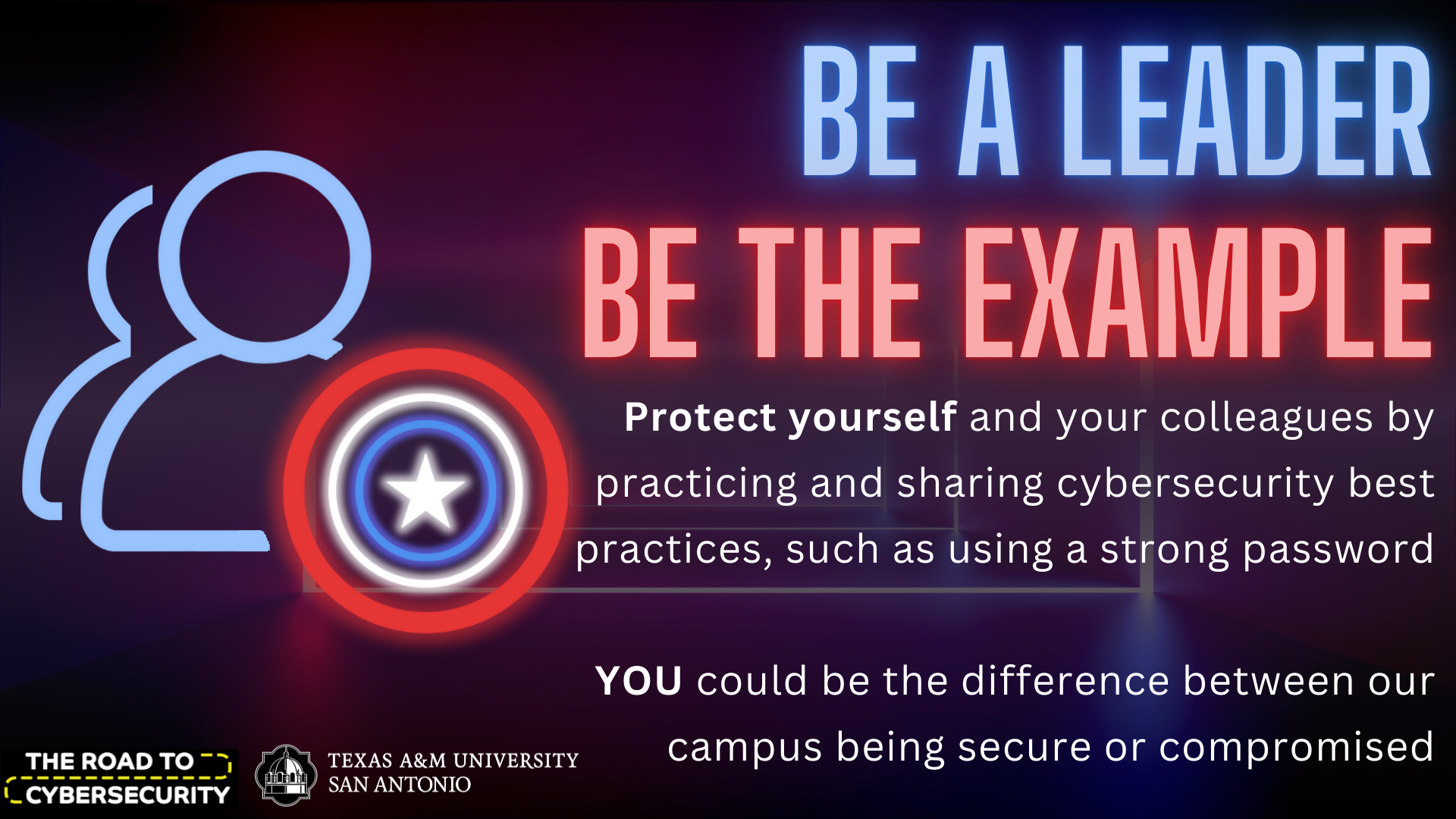
FOLLOW POLICY
TAMUSA policy requires accounts that do not update their passwords regularly to be locked from accessing campus services.
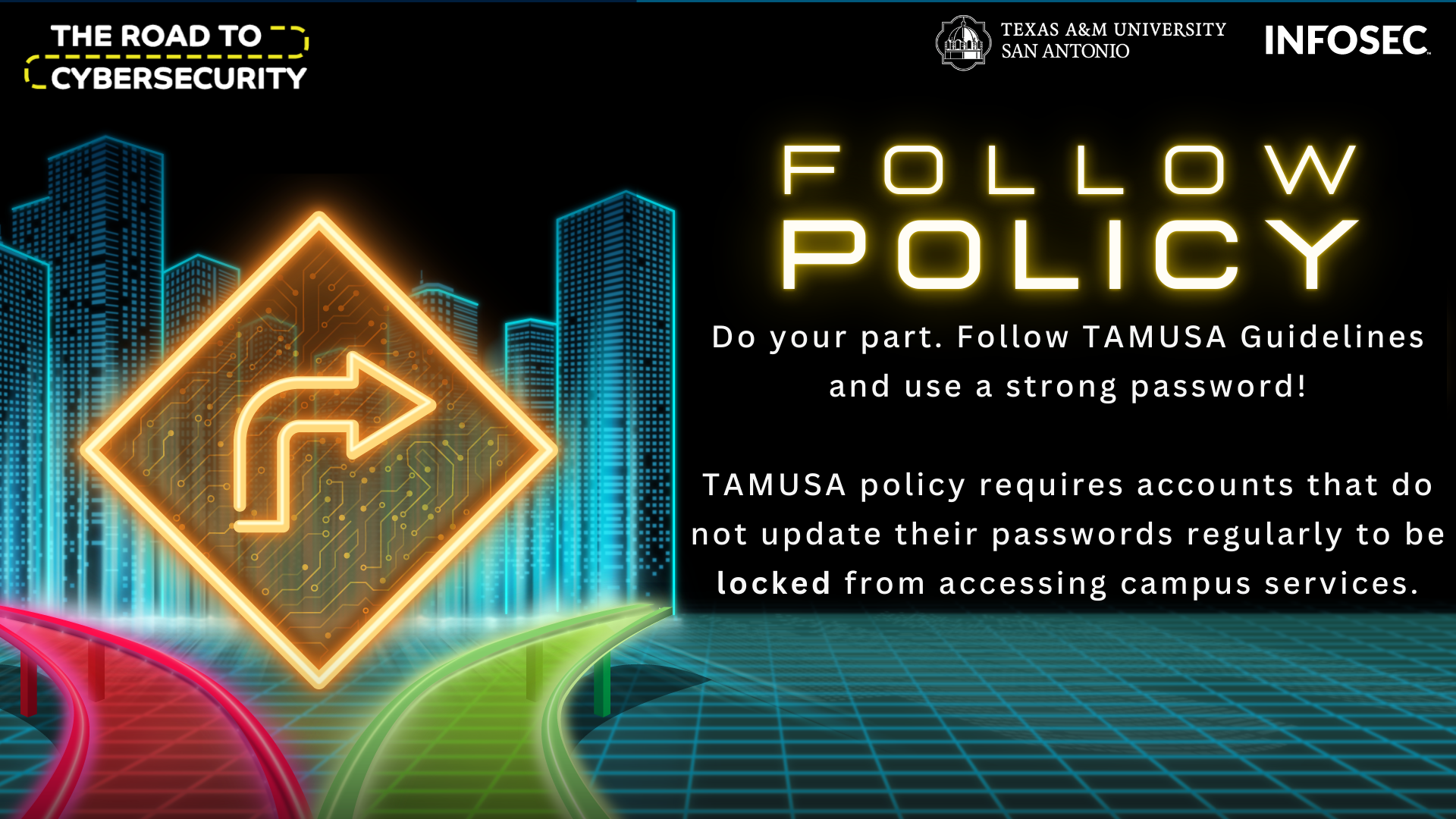
Week 4
Week 4:
GONE PHISHING
Phishing is a cyberattack in which the perpetrator attempts to steal sensitive information, such as bank information and passwords, on websites that pretend to be legitimate. Don’t get caught, always REPORT.
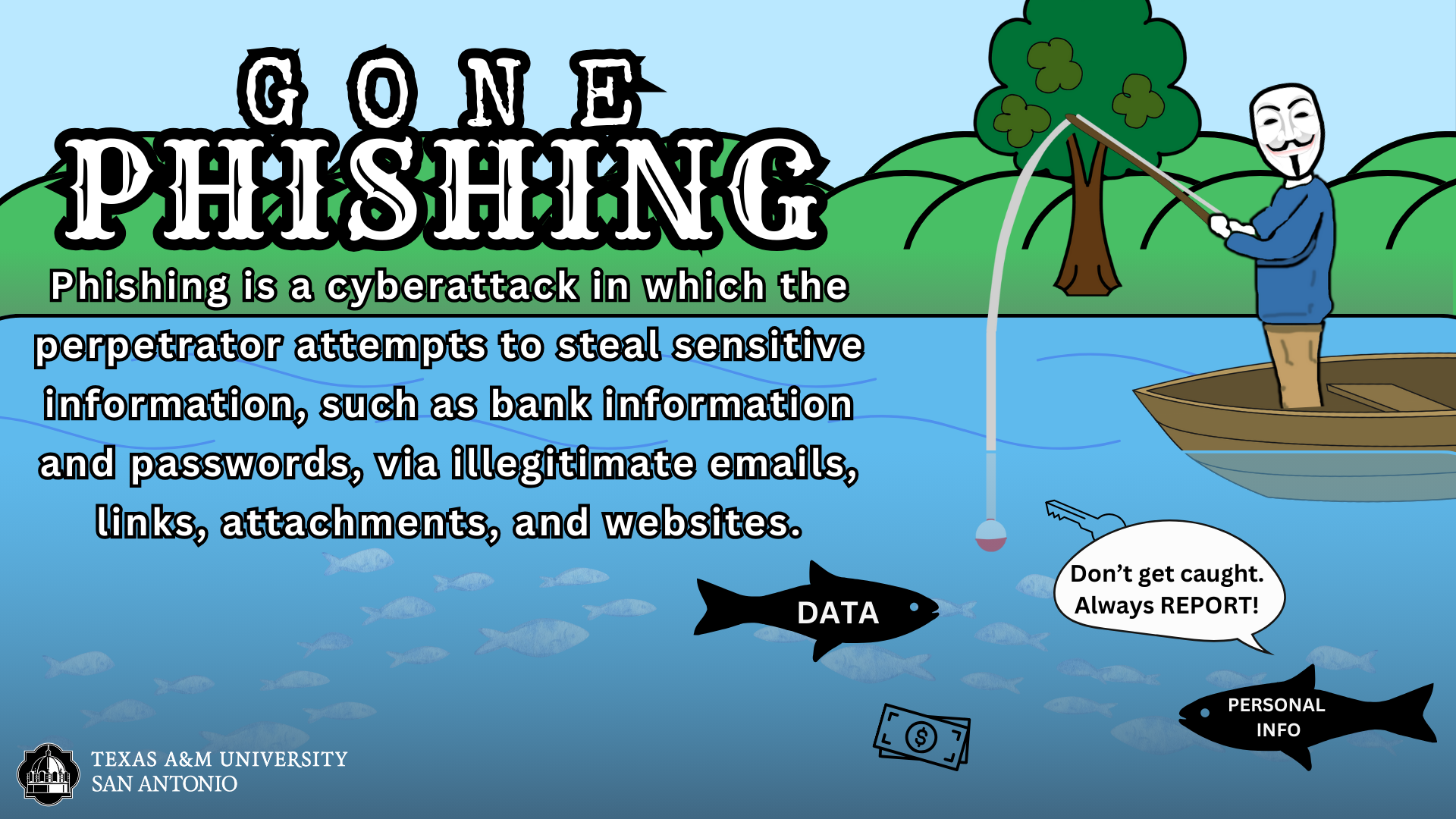
REPORT!
Report suspicious emails! Cybercriminals will impersonate others to steal your information. Do NOT click on the link. If you aren't sure, report to be safe!
Phishing is one of the most widespread and dangerous methods hackers use to compromise accounts
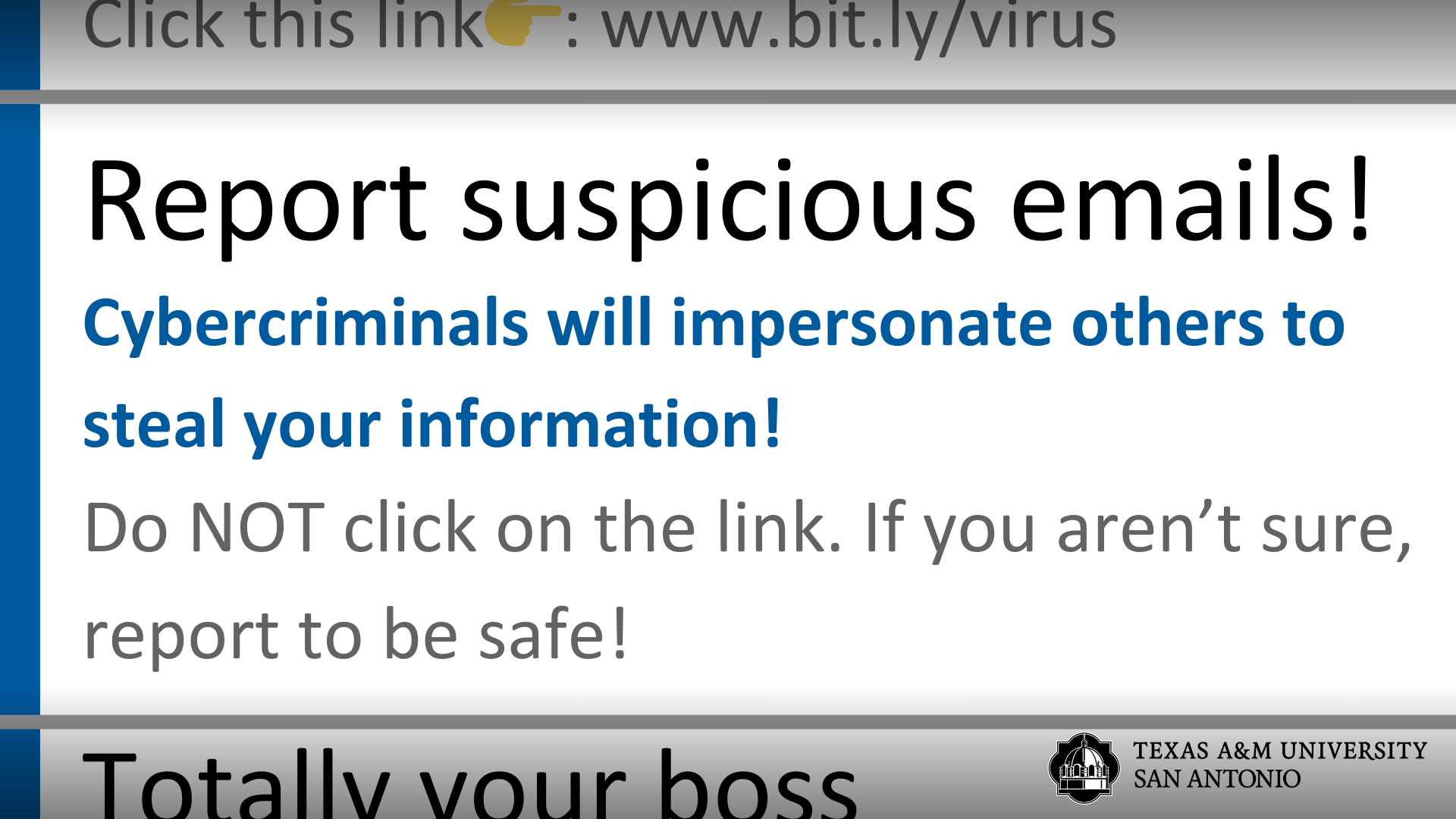
Week 3
Week 3:
CONFIRM YOUR BOSS IS NOT A TERMINATOR
Cybercriminals send mixed signals. They may impersonate your boss or supervisor and try to make odd requests: sharing info, purchasing gift cards, sending money, etc.
Always verify the true sender of an email or text! Give them a call, stop by their desk, or verify some other way.
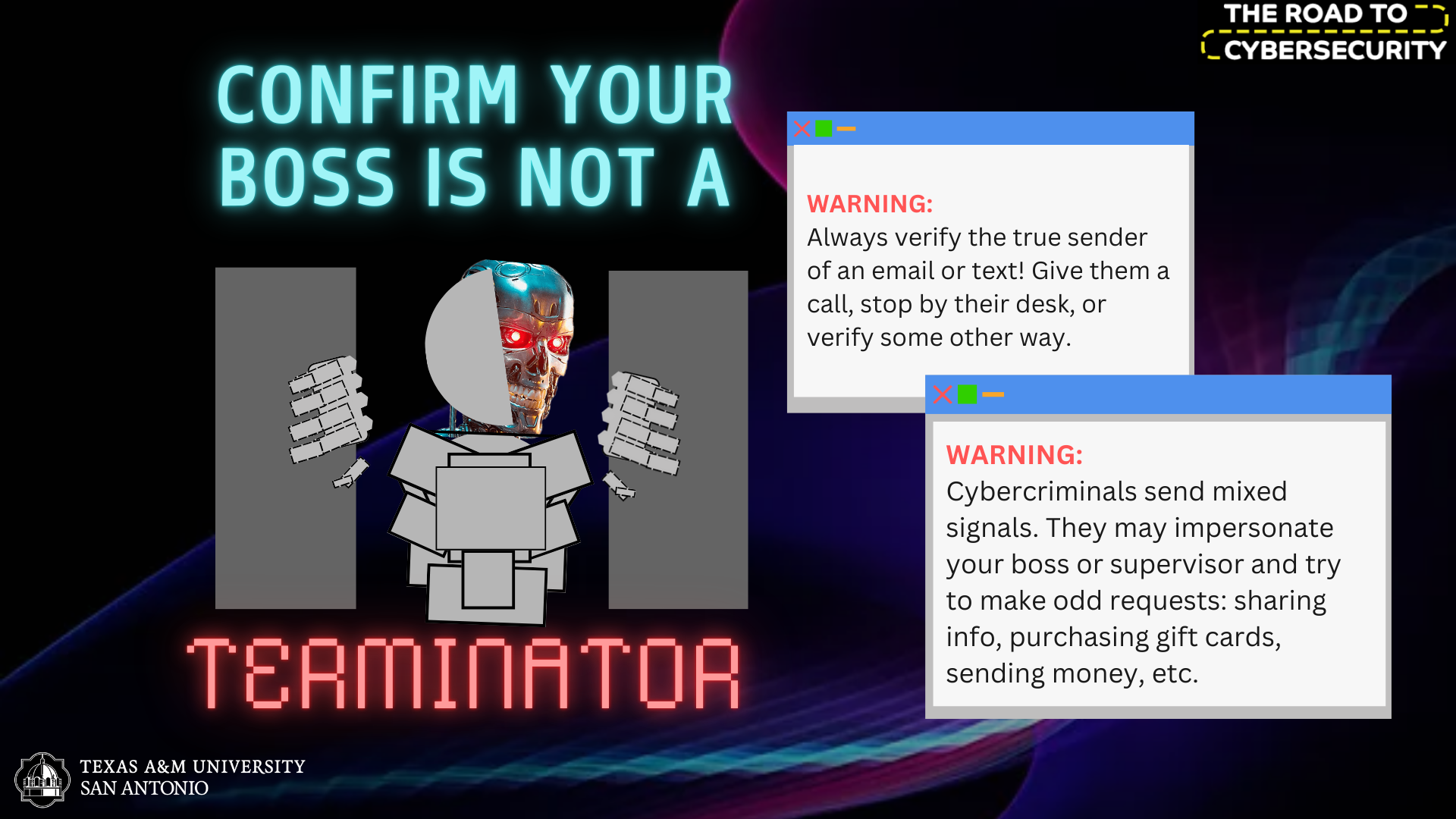
COULD THEY BE A CYBERCRIMINAL? USE YOUR DETECTIVE SKILLS.
- Check Email Address
Have you verified the sender isn’t an imposter? - Check Grammar
Are there spelling and grammar mistakes? - Is there urgency?
Does the email have a threatening nature?
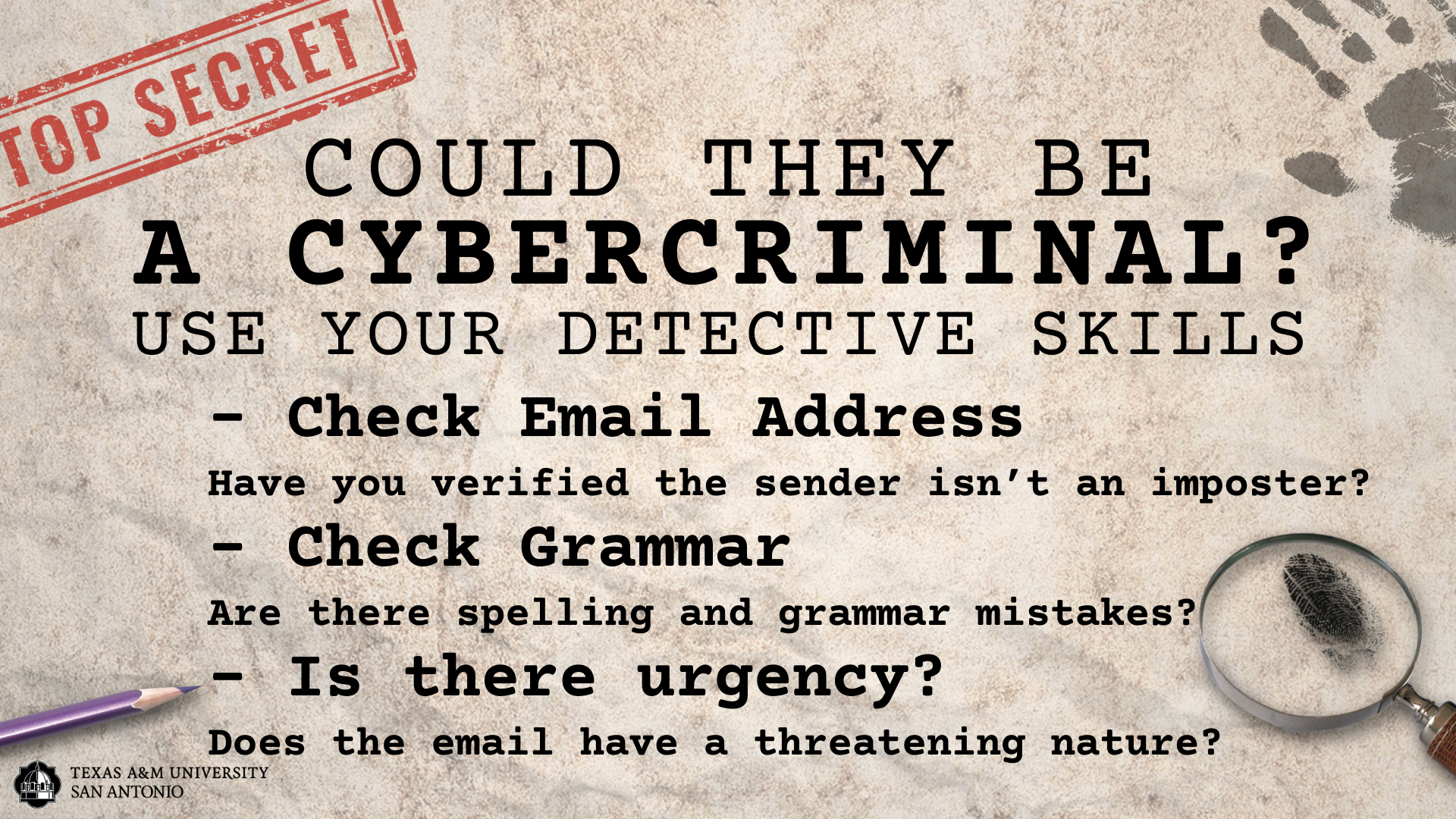
Week 2
Week 2:
Ransomware - Keep Your Files Safe!
Ransomware is a specific category of malware that causes harm to the computer
Files are encrypted until perpetrator receives payment in cryptocurrency.
Despite the scale of the operation, one person being aware can make all the difference.
Remember: It’s smart to be suspicious!
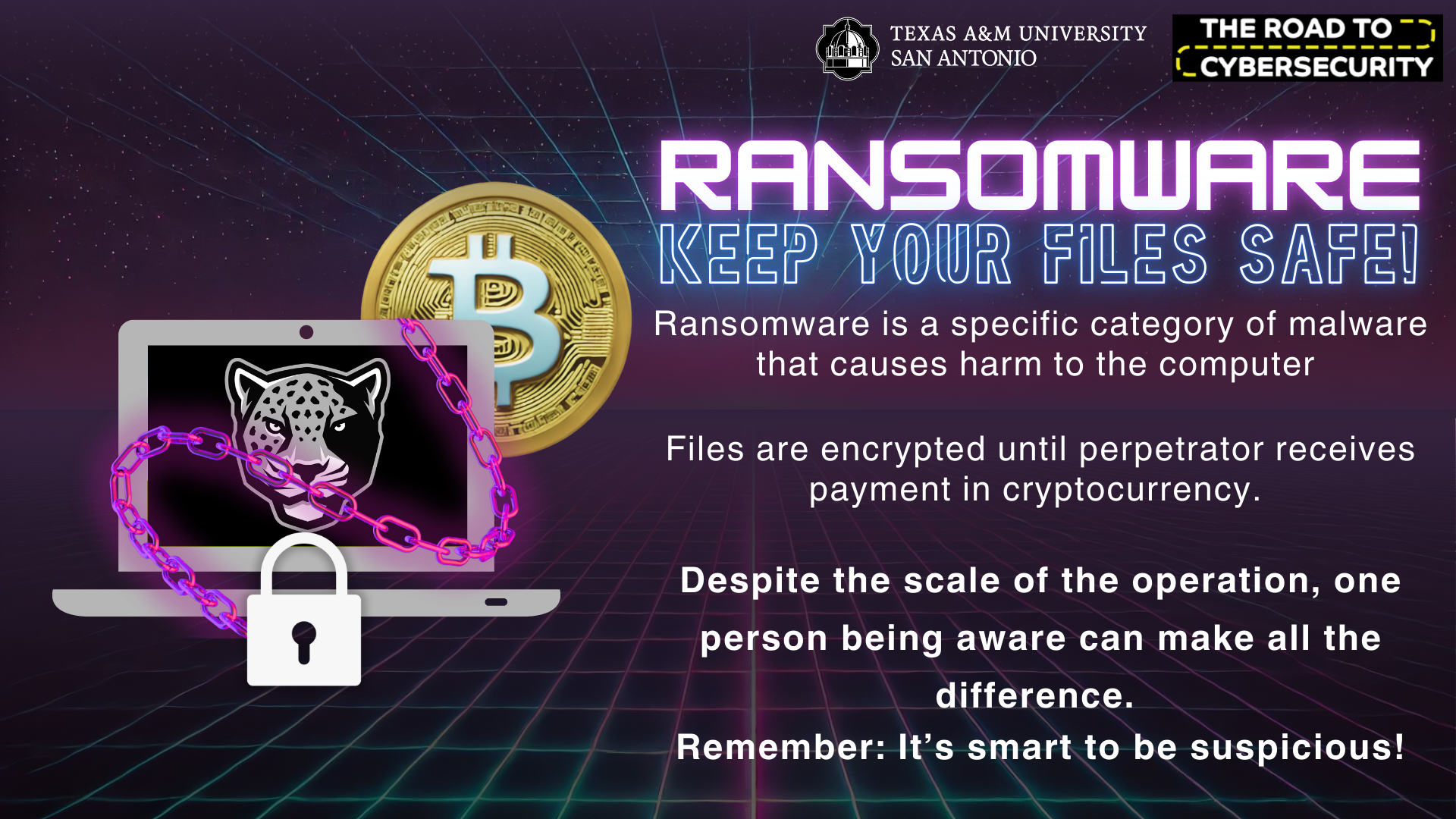
Be Suspicious
Always double check the legitimacy of an email or webpage. Cybercriminals are getting more and more intricate with their attacks, so be suspicious!
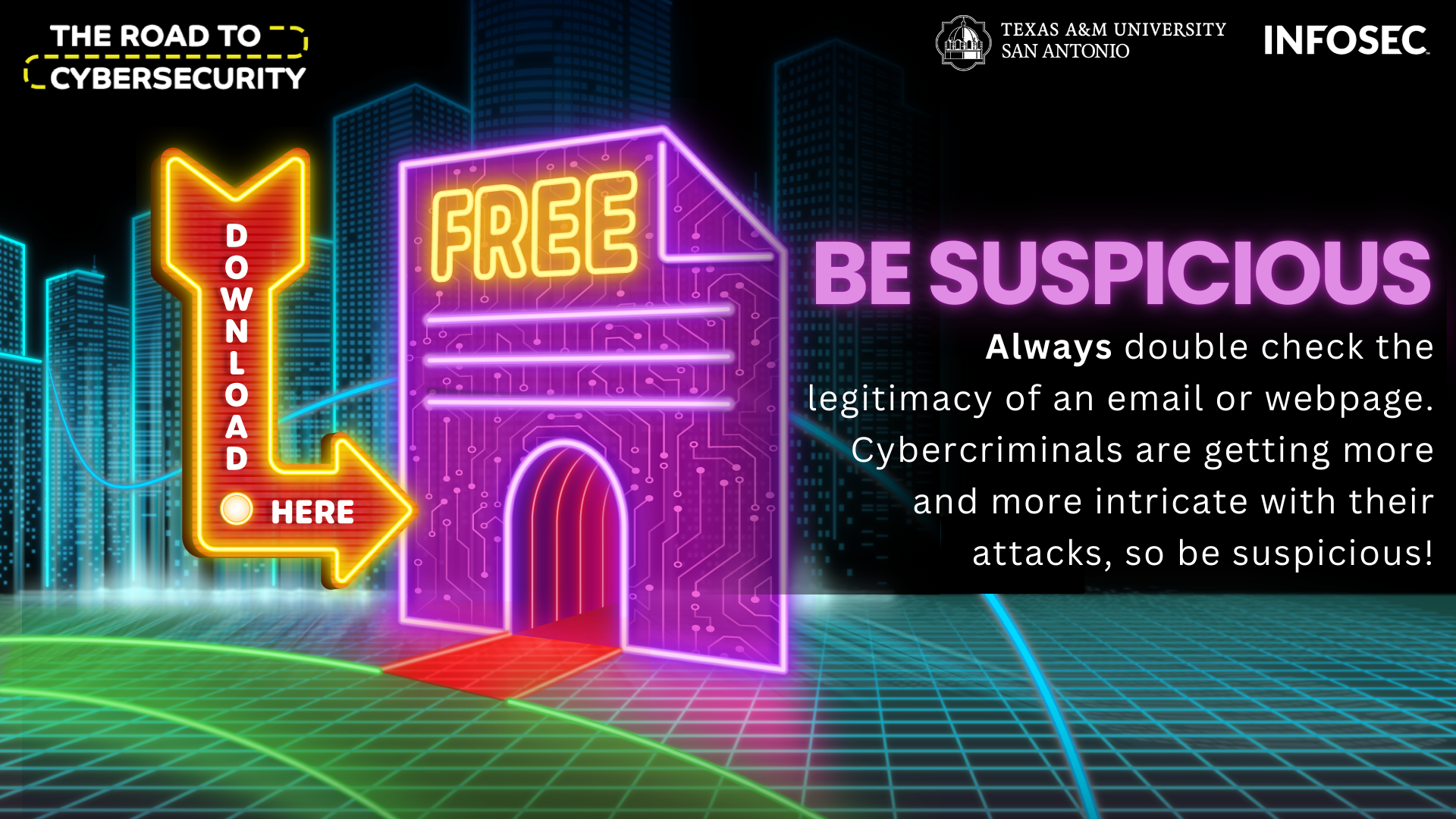
Week 1
Week 1:
Cyberattacks are speeding up
Organizations have been a driving force behind cybersecurity awareness and training. It’s more important than ever to be up to date with cybersecurity knowledge so that attacks don’t happen on your watch.
Go slow and be suspicious!
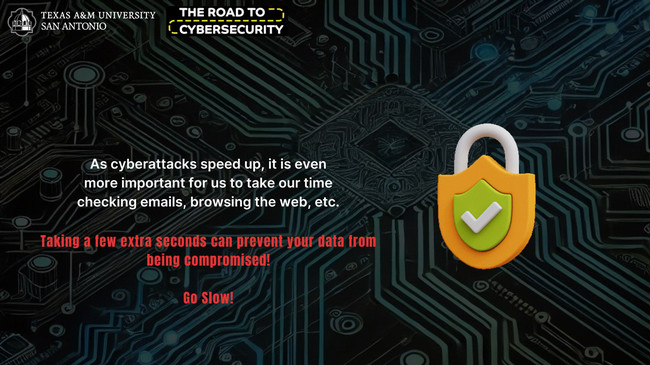
Social Engineering
When a hacker impersonates someone to gain access to an organization. Be suspicious, verify their identity, or else you could face big losses.
Watch Out For Impersonators
